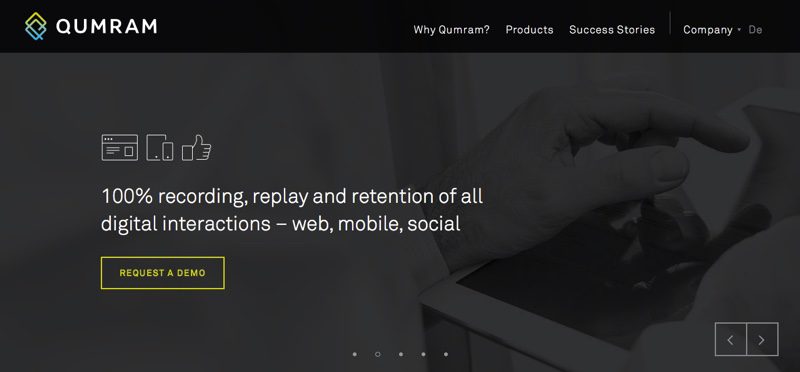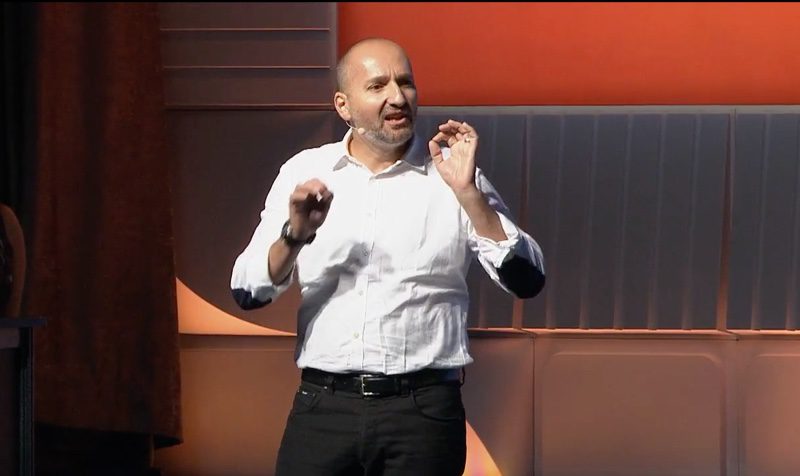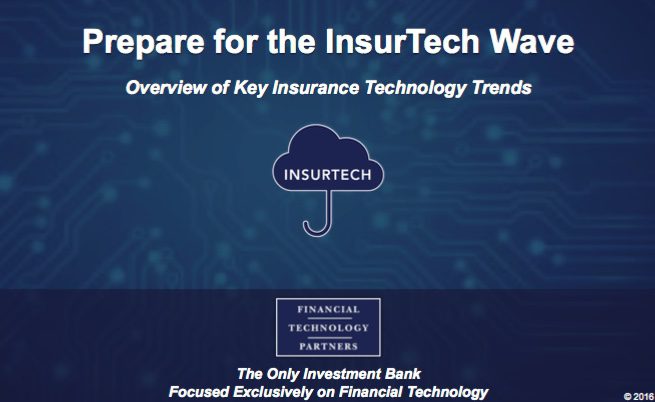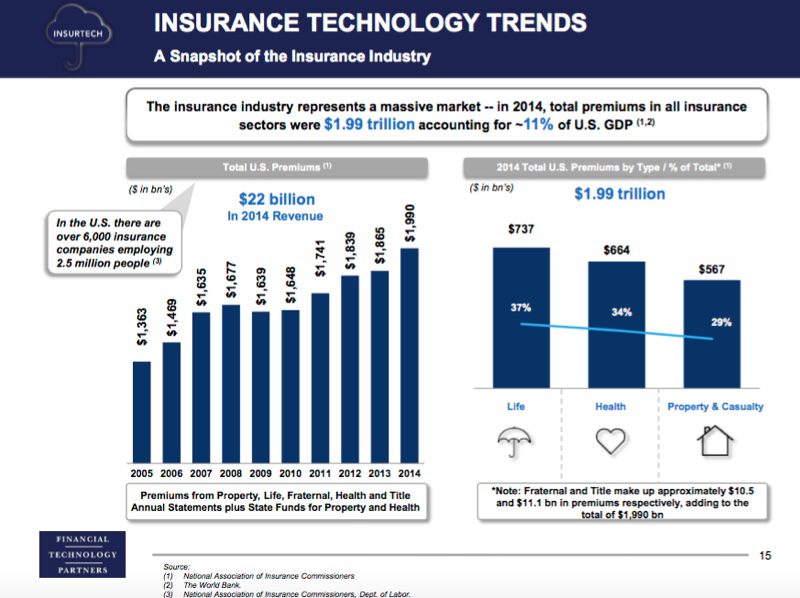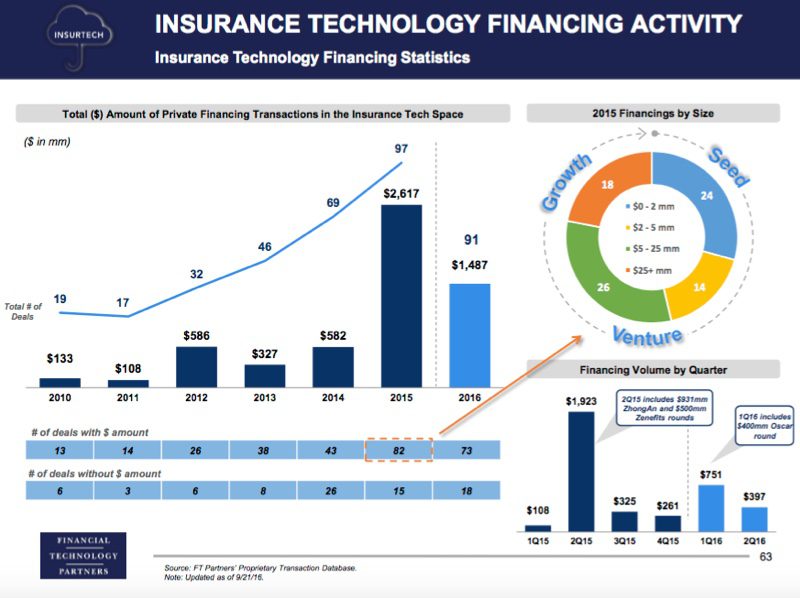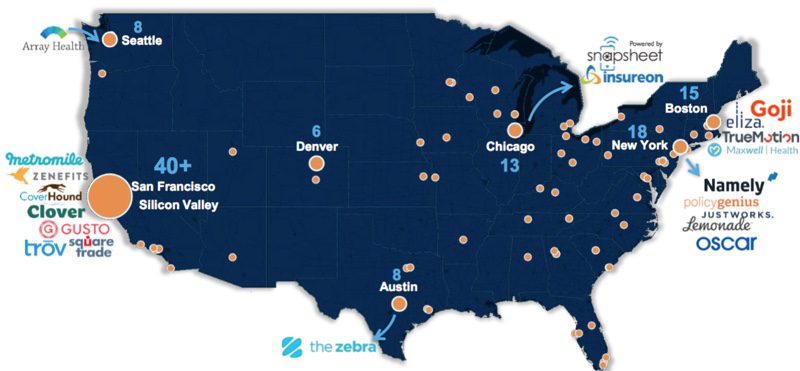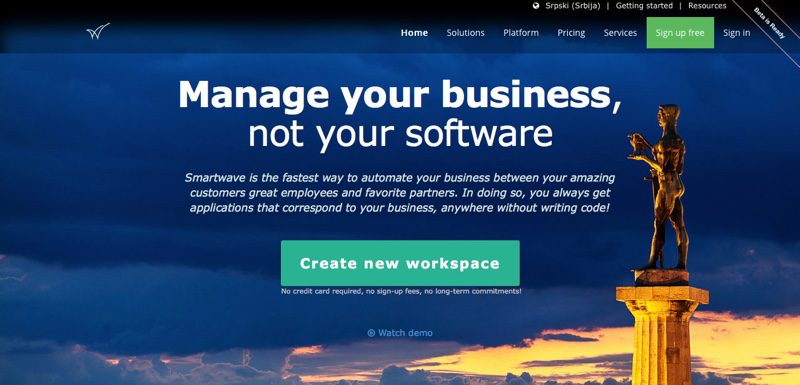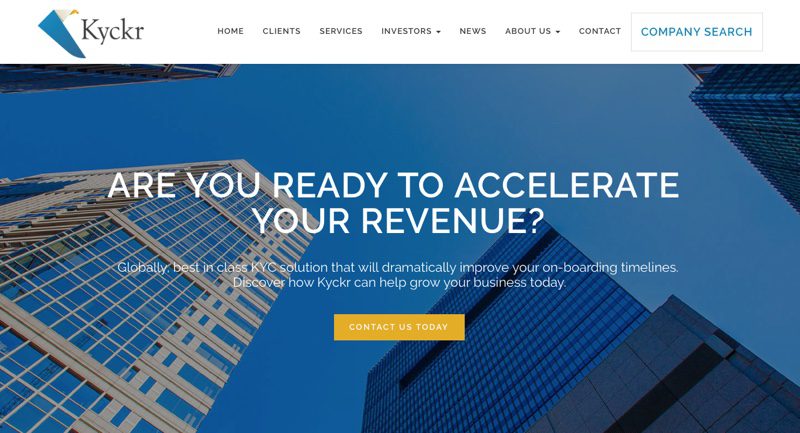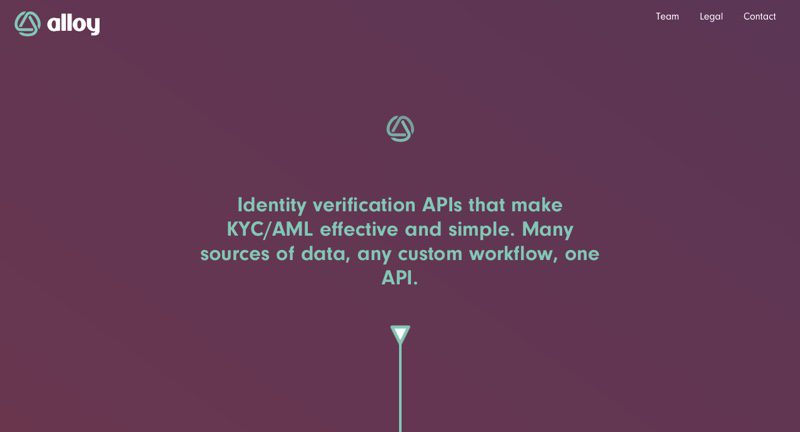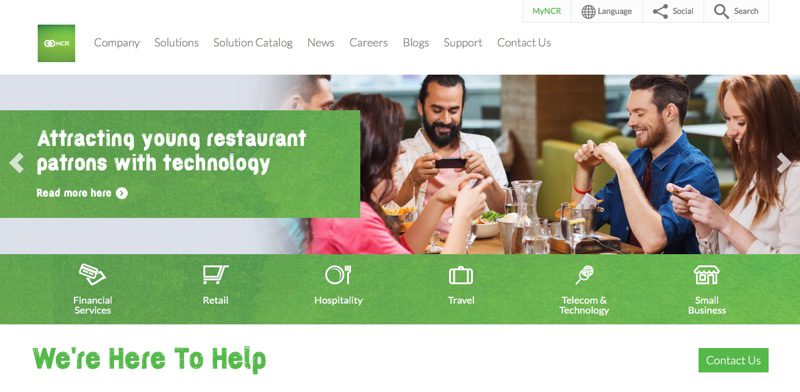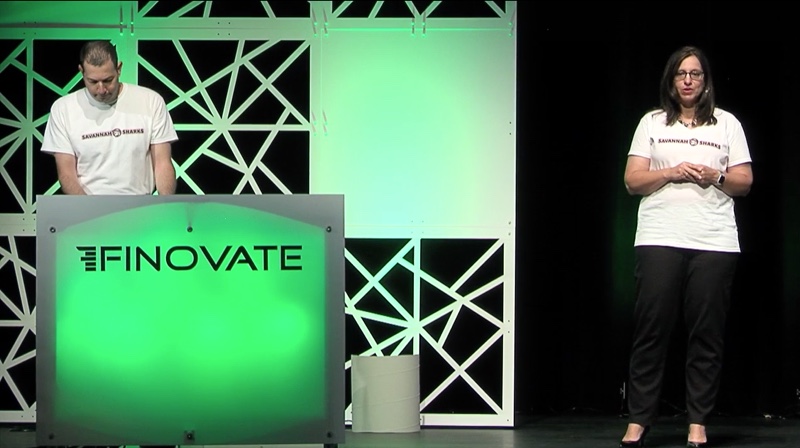
Is it fair to judge a fintech conference based on the way it reflects, anticipates, and even uncovers what’s most important in the field? We think so, and were once again impressed by the way FinovateFall this month helped spread the story of fintech in the second half of 2016.
After all, we read about new technologies every day. But once the wow factor subsides, the question remains: Does it really work? Is anybody, any bank, any business in the real world actually putting this great looking, great sounding technology—these bots, this blockchain—to the test?
The good news is that the good news is true: new technologies like chatbots not only work, but were demonstrated live on stage by companies like Personetics (F16); Fiserv (F16); Kore (F16); and FinovateFall 2o16 Best of Show winner, Backbase (F16). We can even include companies like Clinc (F16) in this category of innovations that make it easier for people to communicate with technology. Clinc, which also won Best of Show honors at FinovateFall, developed and demonstrated an artificial intelligence-based natural language, using an intelligent assistant that earned rave reviews from both attendees and the media.
What about the blockchain, you ask? Earlier this year at FinovateSpring, our attendees awarded a Best of Show trophy to BanQu (F16), a company that uses blockchain technology to help refugee and displaced persons re-establish community ties through identification and financial inclusion. This month at FinovateFall, we met Full Profile (F16), an Australian company leveraging the blockchain to support real-time settlement, financing, and provenance-tracking of agricultural commodities.
- “Blockchain technology extends to agricultural contracts”—The Australian
But FinovateFall was about more than the most headline-grabbing technologies. As our Best of Show voting revealed, the appeal of technology to solve more everyday problems—be it buying a car or a gift card—remains strong as well.
“You’ve Got A Car!” and a Digital Revolution in Regifting
This certainly seems to be what Finovate attendees had in mind when it came to Finovate newcomer and Best of Show winner AutoGravity (F16). Founded last fall, the Irvine, California-based startup leverages the smartphone to make every aspect of the car-buying experience easier, from initial selection of a vehicle all the way through the financing process. As with a growing number of fintech solutions, AutoGravity combines several innovations we’ve seen individually in fintech demonstrations over the years—document scanning; the integration of social media with credit application; geolocation—to produce a solution that seeks to disrupt traditional auto financing as we know it.
Swych (F16), the mobile gifting platform that also won Best of Show, is another example of technology making magic out of the otherwise mundane. The company facilitates the purchase, sending, redemption, and exchange of gift cards using digital technology that puts the smartphone at the center of the process. Based out of Plano, Texas, Swych’s technology brings the gift card industry into the 21st century, potentially helping breathe new life into what is typically thought of as the “gift of last resort.”
- “Mobile tech for automobile lending, gift card redeeming snag top prize at Finovate”—Bizjournals
- Brief: FinovateFall 2016 Best of Show—CrowdfundInsider
Security: short and sweet
It is no exaggeration to say that Trusona (F16), a two-year-old security specialist out of Scottsdale, Arizona, provided one of the most well-received demos of the year. And a large part of what made it so successful (and such a must-watch) was the way the demo itself embodied the dream of a simple security solution that works the same way every single time.
By quickly and effortlessly authenticating and logging in repeatedly in the course of six minutes, Trusona CEO and founder Ori Eisen did what every person who has ever wracked their brain for their most recent password, or struggled to enter a captcha code on a mobile phone, wants out of a security solution: Make it fast, make it easy, make it work the same way every single time. With plenty of competition in the security space from innovators on stage and off, it is no surprise that Trusona, with its #nopassword campaign and did-I-mention-it’s-free offering, stood out from the pack.
- “Trusona Wins ‘Best of Show’ at FinovateFall 2016—MarketWired
Everybody loves a (six-time) winner
No discussion of FinovateFall would be complete without a tip o’ the hat to MX (F16). The company took home its sixth Best of Show trophy, impressing audiences with its PowerSwitch technology that allows an FI to quickly establish a new card of reference for consumers across a variety of platforms such as Netflix, Uber, Hulu, and Amazon.com. This gives financial institutions a powerful tool in attracting new customers and in providing new options to existing customers. It also gives FIs potential access to what MX CEO Ryan Caldwell called “a mountain of interchange”—more than $200 billion in 2015 according to MX—that banks and credit unions can’t afford to miss.
- “MX Achieves Innovation Milestone, Becomes First Company to Win Finovate Best of Show Six Times”—MX Blog
For more coverage on FinovateFall, check out our press roundup and our FinovateFall on Twitter post.
In other news
A hybrid debit/credit card
San Francisco-based startup Zero raised $2.5 million this week. While the investment sum is not particularly notable, what the company is doing certainly is.
Zero offers a Visa credit card that works in conjunction with a mobile app, but it’s not just another alt/neo/challenger bank. The differentiating factor is that Zero deducts money from the user’s account in real time just like a debit card, so there is no monthly bill. Unlike a debit card, however, transactions process on credit card rails so cardholders receive from 1% to 3% cash-back on purchases. It also touts no fees and pays higher interest on deposits (though they don’t yet specify how much) than traditional savings accounts.
The credit card is made out of solid metal and the app offers great looking PFM tools that forecast users’ balances into the future. Clearly, the startup has millennial users in its sights and claims to have the potential to increase a credit score, since there’s no way to default on payments.
The company makes money on merchant processing instead of charging fees to users. It also saves money on advertising by using a pyramid-scheme referral approach (which worked on me as I shamelessly promoted them on Facebook yesterday).
With recent talk of credit cards falling out of favor with millennials because of their hesitancy toward debt, Zero offers an option that provides the best of both worlds—the cash-back and credit-building opportunities that come with credit cards, and the real-time transactional capability of debit cards.
Another just-launched startup doing something similar is New York-based Debitize. However, Debitize does not issue a new credit card but instead aggregates customers’ existing credit-card transactions and initiates a real-time transfer from their checking account to cover the charges. Keep an eye on this space; we think we’ll see FIs picking up on this idea in the next couple of years (presuming regulators allow the practice).
New ACH regulation
The first phase of same-day ACH-transfer regulation lands today. And while the final phase will not hit until March 2018, all bank and credit union accounts must now accept same-day transfers.
To help banks move forward with the new rule, Dwolla (F11) launched a white-label API for same-day ACH. The API, which is in a pilot program, currently supports credits only. Dwolla will roll it out with more partners in Q4 of this year.
The Clearing House, the organization behind the ACH modernization, has partnered with IBM’s (F16) Power8 to serve as the hosting program for same-day ACH. U.K.-based Vocalink (purchased by Mastercard in July 2016) is set to deliver the platform, which will roll out to banks in the U.S. within the next year.
